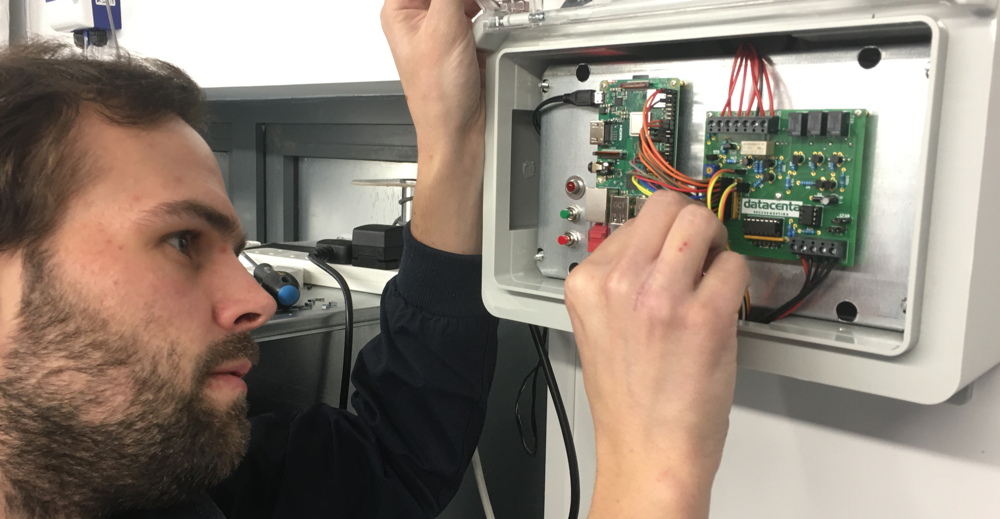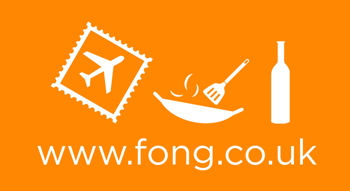Having spent the last 20 years as a business owner in Bournemouth, I reached one of those turning points in life – you know the type – where one reflects on the past, present and future. After a while I realised that on the whole I was doing fine, having scraped through two recessions and now, especially with the epoch-making impact of a global pandemic, I fully understand how much those two decades have left me with a threading of stresses and scars, failures and triumphs. Out of my rumination rose a very positive outcome. One that both acknowledged retirement was still some way off for myself and my business partner, but also set in train a fresh objective, a longer-term vision … something beyond us.
And so it began – a new future. Prompted by the sale of the building which had housed our data centre for many years, we realised this was the opportunity to reset, the result being a new facility at the Dorset Innovation Park. Taking an empty unit, we added a mezzanine floor and built an innovative circular pod for our server racking. The team also designed a printed circuit board and wrote software to act as the control system that brings in cold air from outside for cooling. This wizardry represented a huge energy saving over air-conditioning. In addition, the project was driven by a “whole team” approach to ensure everyone was invested in its outcome and success. Emulating the engineers whose signatures were imprinted on the inside cases of the first Apple Macs, our wizards had their names added on the printed circuit board.

As for me, I was slowly learning what it was like running a business in what I called blithely, “rural Dorset”. I was corrected by someone from Dorset Council who, rightly so, told me that places like Weymouth or Dorchester were not rural, in fact they are as much conurbations as Bournemouth, Christchurch and Poole (BCP). Simply put, I still had a lot to learn, and perhaps the best illustration of this deficit was the week I experienced a stark contrast between BCP and the rest of Dorset.
I was scheduled to attend Dorset Spark 2.0, an event being held in Bournemouth to bring people together from business, academia, Dorset Growth Hub and Dorset LEP. [1] It was a vibrant day where people went into smaller groups to tackle a range of topics. There was a broad mix of people in terms of age, profession, and students on courses relevant to the event. There was a vast amount of enthusiasm for the future, and a stout recognition there’s still a lot to do.
The very next day I had to get up very early (for me anyway) to get from the south side of Bournemouth to a Wareham hotel for a breakfast meeting at 7.30am., organised by Dorset Council. Its objective: to set out their Economic Strategy for the next 15 years. [2] I won’t dwell on the content of the day but it is worth stressing it was very different to the event held in Bournemouth the previous day, both in terms of people’s enthusiasm and their outlook for the future. A case in point being a question posed to attendees as to whether the Dorset Council region would have a thriving Digital economy providing exciting opportunities for young people. The response seemed to be overwhelmingly in the negative, and for me the starkness in the room was palpable. I even made a note at the time, also sharing my shock on Twitter.[3] Later, during a break, I spoke with Council staff, who reassured me that this didn’t represent everyone’s voice, and as I’m a half-glass full sort of person, I was happy to hear further the Council’s objectives and aims.
After the meeting, I pondered on what might be the reasons for what I perceived to be the jaded opinions of some of the attendees. Was it due to years of unfulfilled promises, or promises not reaching the mark? Since that meeting, it’s likely the pandemic and the vast up-tick in people working from home offers a different mode of possibilities for Dorset. For instance, if more and more businesses remain or migrate to digital delivery of services, with less and less need for “brand” offices, then that economy could spread across the county and regionally without limitations. But one vastly important inhibiting factor may remain in situ – good, high speed Internet connection.

Without fast reliable connectivity, it is difficult to build a digital business, or to work for a digital business. The rural setting does make this more of a challenge as providers may not meet their cost to benefit ratio. Thankfully, we have the likes of Wessex Internet who are building out their infrastructure across Dorset.
The Pandemic has shown working from home can benefit many sectors, but it can also be a double-edged sword as local businesses can hire workers whose homes are in cheaper regions of the UK, or the World, the result being a downward trajectory in hourly rates and salaries. The counterbalance to this potential downward pressure may be the remote worker, who doesn’t have to work for a local business, may be London-based and paid commensurate hourly rates or salaries. Or indeed, a large company based anywhere across the global economy. On the other hand the new equilibrium may result in London businesses recognising they don't need to pay London salaries, especially if they ditch the expensive offices too.
Where does Dorset fit into all of this? I see opportunities as in the movement of skills from London and migration from the UK’s capital to regions such as Dorset, offering a better quality of life and less commuting. Business headquarters may even be tempted to move to the region. However, there will be challenges, such as additional housing needs and no doubt in some areas, rising house prices. Plus, Dorset can’t rely on hospitality and tourism alone. The pandemic has shown that through the use of even basic IT, the Digital sector and service companies were able to simply carry on with business as usual, at least to their customers. Certainly in a post-Brexit economy, the county needs all the opportunities it can get, so let me throw in some random thoughts.
Firstly, let’s pull together two sectors, that of the Digital services world and the Foodie world, both of which are very strong in Dorset. Second, I strongly contend just about every business needs to build up their digital skills. I’m not talking so much about how many “likes” are received on social media, but shifting to a “little and often” approach to content, which both reminds their own customers as well as laying a digital breadcrumb trail to be discovered. Based on the adage that we eat with our eyes, premium photography and videos of produce and foodie venues will help a business set the bar and entice customers.
A lack of decent Internet speeds at home, in hotels and outdoors has an impact on the experience of businesses and consumers. If it is painfully slow for businesses to upload content and use online tools the chances are they might not bother or necessitate a reduction in their usage. For consumers, not being able to add to their Instagram feed quickly is a First World problem, but it’s also a missed free marketing opportunity for that business or location. And then there’s always FOMO, the Fear Of Missing Out!
In terms of bolstering the Dorset foodie economy, we need to grab holiday makers heading towards Devon and Cornwall along the A303. If the likes of Sherborne, Gillingham and Shaftesbury had great eateries, free wifi and Electric Vehicle charging points, and promoted stopping-off points for a short break while topping up their Teslas, there is every chance they would become known destinations. This tactic could also be deployed as a messaging opportunity on the delights of Dorset, ripe for discovery.
Lastly, I harbour a whimsical idea that I hope will come to fruition in the not-so distant future because people are craving experiences now. A grand “Best of Dorset Banquet” held in an equally grand venue with dishes made by Dorset chefs using Dorset produce. With good audio visual kit in place, it would be projected from the table top taking us to fields, vineyards, distilleries and walled vegetable gardens. By the use of tablets on each table, food producers and chefs relate their stories and foodie tips to banqueters, and take questions as each course progresses through the evening. There would be wine tastings and demonstrations of cocktail making.
The past year has shown that change is inevitable. The digital ride is going to get faster and faster. We can’t risk delaying we have to jump on board.
[1] https://www.dorsetbiznews.co.uk/spark-event-helps-shine-the-way-ahead-as-dorsets-growth-challenges-are-debated/
[2] https://news.dorsetcouncil.gov.uk/2020/07/23/cabinet-approve-a-new-strategy-for-economic-growth-in-dorset/


